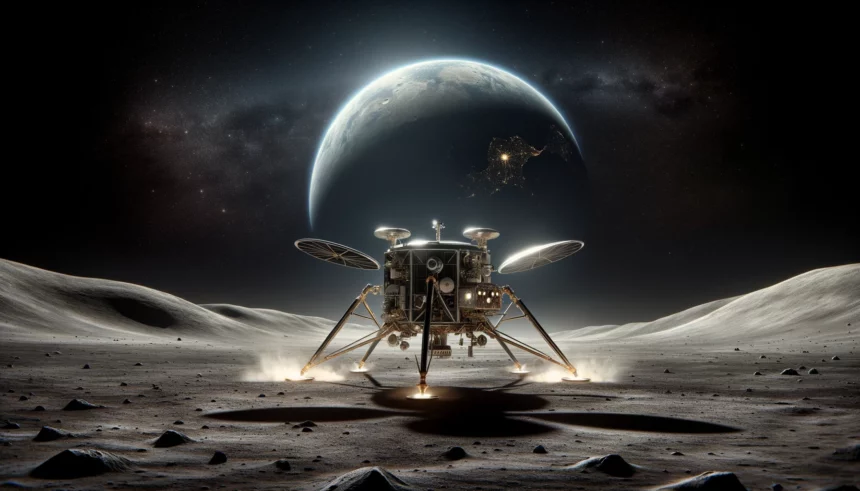In an unparalleled achievement that signals a new chapter in space exploration, a spacecraft developed by the Texas-based Intuitive Machines made a triumphant landing near the moon’s south pole this Thursday. This landmark event not only represents the first U.S. lunar touchdown in five decades but also heralds the first time a private company has successfully landed a spacecraft on the moon.
NASA’s collaboration with Intuitive Machines, featuring several of the space agency’s research instruments aboard the vehicle, is a testament to the growing synergy between governmental aspirations and private sector innovation in the quest to explore the final frontier. This mission, part of NASA’s broader strategy to deploy commercial spacecraft for lunar scientific missions, is a crucial step towards the eventual goal of returning astronauts to the moon.
The journey to the moon was not without its drama. Named Odysseus, the robot lander’s final descent was a nerve-wracking affair, marked by an unexpected glitch in its autonomous navigation system. The quick thinking and ingenuity of the ground engineers, who implemented a last-minute solution, ensured the mission continued its historic path.
Despite initial communication setbacks post-landing that cast a shadow of uncertainty over the mission’s outcome, the team’s perseverance paid off. The eventual re-establishment of communication with Odysseus, albeit with a weak signal, was a moment of relief and celebration. The signal issues suggested potential obstacles near the landing site, possibly affecting the lander’s ability to transmit data.
The spacecraft’s landing near the Malapert A crater, chosen for its scientific value and proximity to the moon’s south pole, is a significant milestone. This achievement is a continuation of the legacy of lunar exploration that the United States has led since the Apollo missions. Odysseus carries the torch forward, equipped with scientific instruments designed to shed light on the lunar environment and prepare for future manned missions.
This mission is a pivotal moment under NASA’s Artemis program, aiming to establish a sustainable human presence on the moon as a steppingstone for eventual human exploration of Mars. The success of Odysseus, amidst the challenges faced by other private lunar missions, underscores the viability and importance of leveraging private sector capabilities in the new era of space exploration.
As the world celebrates this triumph, the mission of Intuitive Machines stands as a beacon of human ingenuity and the relentless pursuit of knowledge. The historic landing of Odysseus on the moon is not just a victory for the company or the United States but a monumental achievement for all of humanity, marking a new dawn in our celestial journey.















